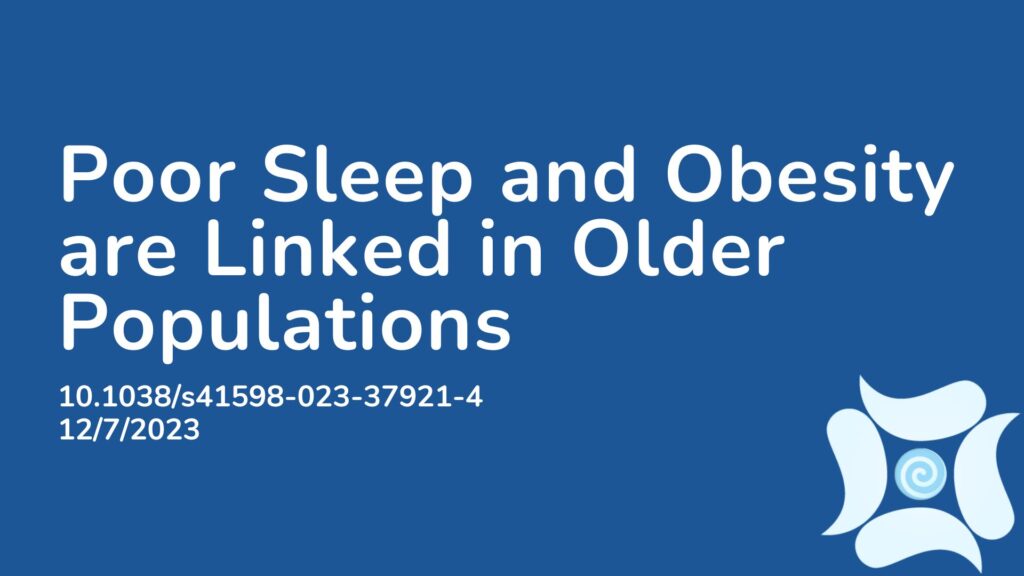Summary:
Rates of obesity are increasing globally, particularly in older populations. There may be physiological processes specific to age that changes the risk factors or ways that obesity presents. As a result of obesity, physical and mental health may decline and can exacerbate the already apparent adverse effects of aging such as poor sleep. Sleep is well known as a crucial determinant of health outcomes, yet sleep impairments are common in older adults. Sleep disorders in this age cohort have been linked to physical and mental disability and other poor health outcomes. In this study of older individuals with obesity (65 years and older), researchers examined the relationship between sleep quality and various health parameters. Poor sleep quality was linked to lower muscle mass, reduced hand grip strength, higher rates of anxiety and depression and worse overall quality of life. These findings suggest that poor sleep quality is connected to impaired health in older individuals with obesity. Considering it is known that obesity can worsen sleep, tackling obesity in older populations may be a way to prevent sleep disorders which contribute to further health declines.
Abstract:
We aimed to investigate associations between sleep quality with selected quantitative and qualitative parameters of health in older individuals with obesity. Cross-sectional assessment (n = 95 men/women; ≥ 65 years; BMI ≥ 30 kg/m2) of sleep quality, body composition, handgrip strength, quality-of-life, anxiety/depression. Mean PSQI score was 6.3. Poor sleepers (n = 49) presented lower appendicular lean mass (ALM) (16.2 vs 17.8 kg; p = 0.0273), ALM/BMI (0.47 vs 0.53 kg/BMI; p = 0.0085), fat mass (48.6 vs 46.6%; p = 0.0464), handgrip strength (19.7 vs 22.0 kgf; p = 0.0542) and handgrip/BMI (0.57 vs 0.66 kgf/BMI; p = 0.0242) than good sleepers. They also had higher anxiety (8.6 vs 5.6; p = 0.0100) and depression (4.8 vs 3.2; p = 0.0197) scores, worse health-related quality-of-life and lower scores in mental (62.8 vs 73.0; p = 0.0223) and physical (52.9 vs 67.3; p = 0.0015) domains. Adjusted models showed that PSQI was negatively associated with ALM (β = − 0.13, 95% CI − 0.25; − 0.01) and health-related quality of life on physical (β = − 2.76, 95% CI − 3.82; − 1.70) and mental (β = − 2.25, 95% CI − 3.38; − 1.12) domains, and positively associated with anxiety (β = 0.57; 95% CI 0.26; 0.87) and depression (β = 0.31; 95% CI 0.13; 0.49). Poor sleep quality associates with impaired selected quantitative and qualitative parameters of health. Additionally, sleep quality was shown as an independent predictor of ALM, health-related quality-of-life, anxiety and depression in older individuals with obesity.
Article Publication Date: 12/7/2023
DOI: 10.1038/s41598-023-37921-4



